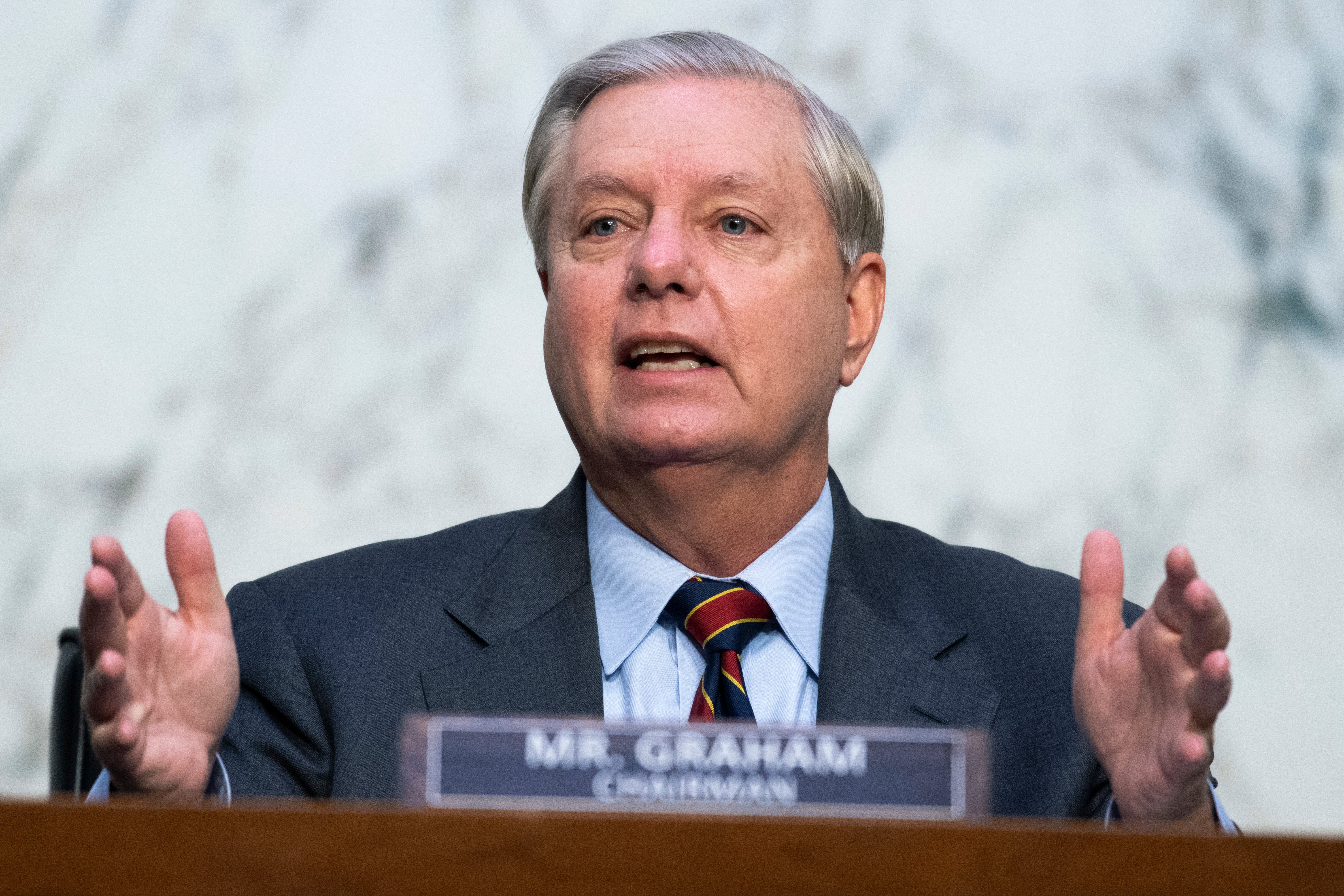AP FACT CHECK: Lindsey Graham revises history on Obamacare
Senators are debating “Obamacare” in Amy Coney Barrett's Supreme Court nomination hearings

Your support helps us to tell the story
From reproductive rights to climate change to Big Tech, The Independent is on the ground when the story is developing. Whether it's investigating the financials of Elon Musk's pro-Trump PAC or producing our latest documentary, 'The A Word', which shines a light on the American women fighting for reproductive rights, we know how important it is to parse out the facts from the messaging.
At such a critical moment in US history, we need reporters on the ground. Your donation allows us to keep sending journalists to speak to both sides of the story.
The Independent is trusted by Americans across the entire political spectrum. And unlike many other quality news outlets, we choose not to lock Americans out of our reporting and analysis with paywalls. We believe quality journalism should be available to everyone, paid for by those who can afford it.
Your support makes all the difference.The senator leading Supreme Court confirmation hearings Tuesday launched into revisionist history on “Obamacare," implying it was designed to help Democratic states like California, New York and Massachusetts while doling out less to states like his, South Carolina.
In doing so, Sen. Lindsey Graham skipped over the fact that health insurance costs more in states like New York, and that South Carolina is among 12 conservative states that have not adopted the law’s Medicaid expansion, a big source of federal subsidies.
A look at the Senate Judiciary Committee chairman's remark during questioning of nominee Amy Coney Barrett:
GRAHAM: “Under the Affordable Care Act, three states get 35% of the money, folks. Can you name them? I’ll help you, California, New York and Massachusetts. They’re 22% of the population. Now, why did they get 35% of the money when they are only 22% of the population? That’s the way they designed the law; the more you spend, the more you get.”
THE FACTS: That's misleading.
In a sense, it is true that states with higher premiums and more enrollment in the ACA’s health insurance marketplaces get more federal money. But that’s driven by differences in premiums between states and by the number of people who sign up for taxpayer-subsidized coverage. It’s not that Democrats who wrote the law put their finger on the scale. The price of health insurance, like the real estate market, reflects underlying local costs such as hospital charges and doctors' fees, which vary.
And there’s another wrinkle: Larry Levitt of the nonpartisan Kaiser Family Foundation says the big reason that some states like South Carolina get much less federal money under Obamacare is that they have chosen not to expand Medicaid, where the federal government picks up 90% of the cost.
Contrary to Graham’s assertion, that wasn’t how the Obama administration and the then-Democratic Congress designed the law, Levitt points out. Obamacare originally required all states to expand Medicaid, with the federal government covering most of the cost, but the Supreme Court made Medicaid expansion optional in 2012.
___
EDITOR'S NOTE — A look at the veracity of claims by political figures.
___
Find AP Fact Checks at http://apnews.com/APFactCheck
Follow @APFactCheck on Twitter: https://twitter.com/APFactCheck